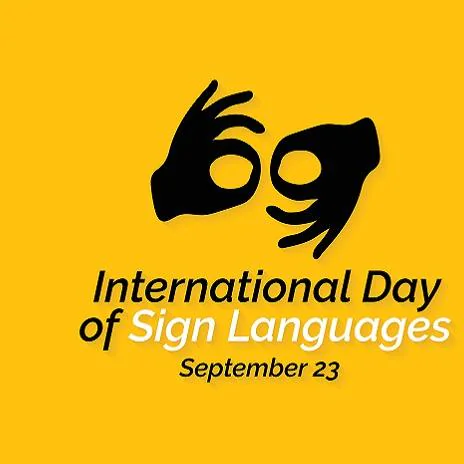The global community will celebrate the International Day of Sign Languages today to highlight the unity generated by sign languages.
The United Nations (UN) General Assembly declared 23 September as the International Day of Sign Languages to raise awareness of the importance of sign language in the full realization of the human rights of people with hearing impairment or the deaf.
This year’s celebration is on the theme: “Sign Languages Unite Us.”
In Ghana, the Ghana National Association of the Deaf, which was also celebrating International Week of Deaf People with a marching theme for each day from September 19 to 25, will visit the Ministry of Gender, Children and Social Protection tomorrow to present its position paper on sign language recognition.
On the international scene, the World Federation of the Deaf has urged country leaders, government officials, Members of Parliaments, and members of the city councils to sign this year’s theme, “Sign Languages Unite Us!” in their national sign language.
It also called for all public places, public landmarks and official buildings, Presidential houses, City Halls, stadiums and others to be spotlighted in blue light on 23 September 2022.
UNICEF calls for renewed commitment to children’s welfare
Journalist gives to widow and her disabled daughters
The proposal for the Day came from the World Federation of the Deaf (WFD), a federation of 135 national associations of deaf people, representing approximately 70 million deaf people’s human rights worldwide.
It commemorated the date WFD was established in 1951, which marked the birth of an advocacy organization, with the preservation of sign languages and deaf culture as prerequisites to the realization of the human rights of deaf people as one of its main goals.
The Permanent Mission of Antigua and Barbuda to the United Nations and 97 United Nations Member States sponsored and co-sponsored resolution A/RES/72/161 respectively, and adopted it by consensus on 19 December 2017.
The International Day of Sign Languages was first celebrated in 2018 as part of the International Week of the Deaf, first celebrated in September 1958 which had evolved into a global movement of deaf unity and concerted advocacy to raise awareness of the challenges deaf people encountered.
It was a unique opportunity to support and protect the linguistic identity and cultural diversity of all deaf people and other sign language users.
According to the World Federation of the Deaf, there were over 70 million deaf people worldwide with more than 80 percent living in developing countries who collectively used more than 300 different sign languages.
Sign languages were complete natural languages, structurally distinct from the spoken languages with an international one, used by deaf people in international meetings and informally during travels and socialization.
The international sign language was considered a pidgin form of sign language that was not as complex as natural sign languages and had a limited lexicon.
The Convention on the Rights of Persons with Disabilities recognized and promoted the use of sign languages, making it clear that sign languages were equal in status to spoken languages.
It obligated state parties to facilitate the learning of sign language and promote the linguistic identity of the deaf community.
The resolution establishing the day acknowledges that; early access to sign language and services in sign language, including quality education available in sign language, was vital to the growth and development of the deaf and critical to the achievement of the internationally agreed development goals.
It recognized the importance of preserving sign languages as part of linguistic and cultural diversity and stressed the principle of “nothing about us without us,” in terms of working with deaf communities.

